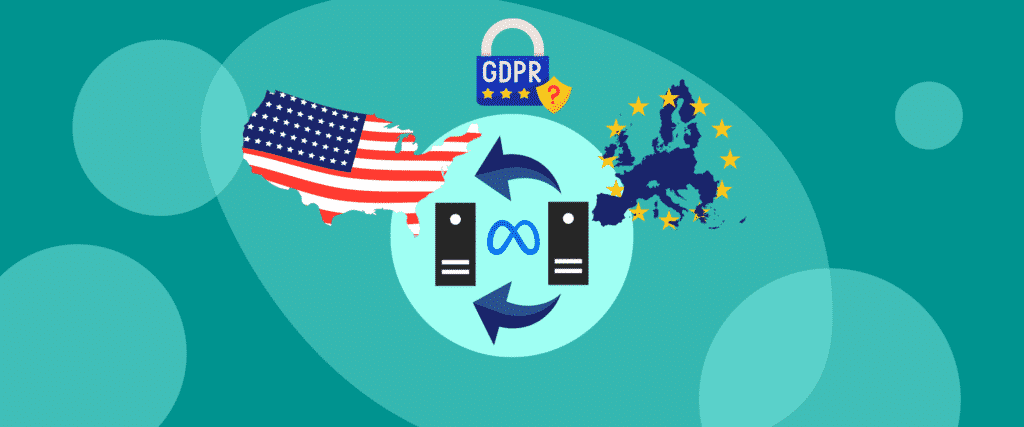[Updated April 2022]
In late March, US and EU leaders announced that they had reached an agreement on a new framework for trans-Atlantic data transfers. “This framework underscores our shared commitment to privacy, to data protection, and to the rule of law,” President Joe Biden stated.
This announcement means the tech giants can breathe a small sigh of relief. After over a year of uncertainty, there has finally been some solid progress on this front. It looks like Meta and its suite of apps are going to stay in Europe for the foreseeable future.
Original article from February 2022 continues below.
Continuing in the same vein as our article on Google Analytics and GDPR, this week’s news involves Facebook and Instagram’s parent company, Meta. The company stated in their annual SEC filings that they will “likely be unable to offer” some of their service in the EU if a data processing and storage agreement isn’t reached.
While they have only just floated this possibility, the fact that data storage on US servers of European citizens’ data has been flagged as a violation of the GDPR is proving problematic for tech companies.
As with most of our big platform news, we’ll give you a 30-second rundown since we know you’re busy managing your Shopify store.
What? Meta has announced that they might shut down Facebook and Instagram across the EU.
Why? There is currently no data transfer agreement between the EU and US. As a result, nothing protects companies from being in violation of the GDPR when storing user data on US-based servers.
Does this affect me? If you are in the EU or target customers with ads who are in the EU, then yes.
Did this cover the basics for you? Glad we could update you on the developing “wait and see” situation! If you want a bit more information on what we think, then let’s dive into it in a bit more detail.
Why is Meta announcing this now?
As we discussed last month, the Safe Harbor and Privacy Shield agreements between the US and EU that previously protected data transfer and storage are no longer in effect. As a result, for the past two years, since Privacy Shield was struck down by the European Court of Justice in 2020, the two governments have been trying to get something on the books. So far, they’ve been unsuccessful.
On top of that, the recent decision by the Austrian court, that related to Google Analytics, may have played a part in Meta including this language in their filing this year. Further, Ireland’s Data Protection Commission has said that its use of standard contractual clauses with regard to EU data isn’t sufficient under the GDPR. The final decision on this matter is expected to come out in the next few months as well.
What happens next with Facebook and Instagram in Europe?
Well, it’s a bit “wait and see” as you might expect. In response to this, a Meta spokesperson Markus Reinisch has said that they have “absolutely no desire” to pull out of the EU, but that businesses need clear guidelines on how they can operate in an international setting while respecting the rights and laws of all regions.


What should Shopify store owners do in the meantime?
Essentially, don’t put your eggs all in one basket. If you’re exclusively advertising on Instagram, for example, take the opportunity to branch out to other avenues where your audience is. While the Meta family of apps are powerful tools, even without any changes to the tracking and regional availability, there is already a slight dropoff in users, especially among the younger demographic.
Your audience visits tons of sites, so go find where else they are. Explore less mainstream channels where you might be able to build a more direct relationship with your niche, like Quora or Reddit. Of course, TikTok and Snapchat are the big ones that people are flocking to now.
Last year, we featured Joe Martinez on our Optily Radio podcast where he talked about his tactics for looking beyond Facebook and Google for advertising opportunities. Check out the preview below, then have a listen to the full episode for his expert insights.











